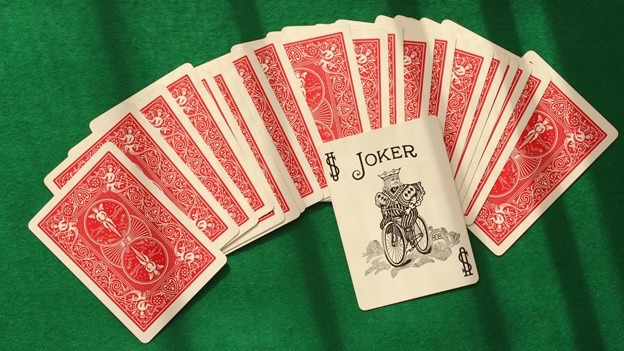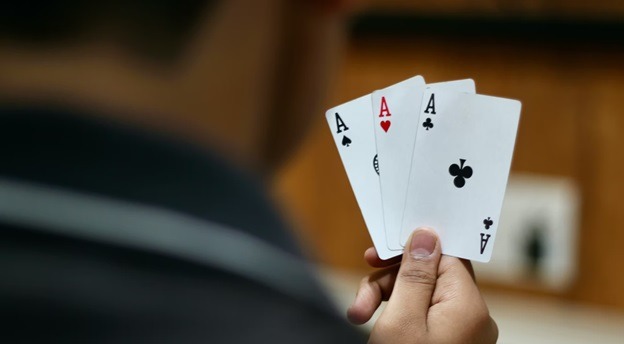Ever since the global poker boom all those years ago, Texas Hold’Em has maintained its status as one of the most popular card games out there. If you want to test your own ability in the game, know that you’ll be up against a lot of competition, but the rewards will be worth the effort. The number of online players is constantly on the rise, which is hardly a surprise – who doesn’t want to make a bit of money quickly? But there’s so much more to poker than just earning a quick buck.
Poker players, especially successful ones, have spent years developing their skills. Their dedication to improvement and analytical thinking is a thing of beauty. That’s why, if you’re just learning how to play Texas Hold’Em, it’s important to start with the basics – understand the rules of the game before putting yourself to the test in online casinos or offline venues. This is a game of strategy, wit, and calculated risks, and it takes time and practice to master. If you want to become a top poker player, we’ve got some tips to help you get started.
Practice Makes Perfect
Nearly a decade ago, Malcolm Gladwell’s 10,000-hour rule gained attention as a sort of new way of thinking about how to perfect a craft. The general idea is that it takes 10,000 cumulative hours to truly become a master of a given skill or activity. It is of course not an exact science, but it reshaped how many people consider the idea of practice and perfection – essentially leading us to assume that intense devotion to a craft is the best way to improve.
That may be the case. But it’s also important to remember that there’s a massive spectrum between “improvement” and “mastery.” Perhaps to challenge consistently at the highest levels of a game, you would need some 10,000 hours of work. But it can take as little as 15 minutes of practice every day to begin gradually improving at a given craft. Accordingly, poker is something you’ll have to commit to if you want to get better. But as time goes by even a little bit of play each day will produce results.
Plus, there’s really no excuse not to practice every day when there are countless sites that allow you to play poker online at the touch of a keyboard! You can either sign up for a website and play for money, or use in-game “play money” or tokens for free.
Strategize, Observe, and Learn from Your Mistakes
Poker is a game of quick thinking. Because of this, your success is dependent on your ability to outsmart your opponents. Luck will only get you so far, particularly if you’re at the table with experienced players. To truly master poker, you have to be one step ahead of your opponent at all times – which is no easy task!
“Reading” people is one of poker’s many thrills, but remember, while you’re trying to decipher them, they’re trying to “read” you too. Understanding how a person’s mind works takes time and finesse, and you don’t acquire the ability overnight. Being able to observe and draw valuable conclusions from what you’ve seen is invaluable in poker. Learning from your mistakes is also essential, as is developing your own game strategy. To achieve all of this, we’d recommend studying different styles and archetypes of the game.
As you try your hand at different poker techniques, you’ll learn to trust yourself and your intuition. If you’re looking to “rise through the poker ranks,” you’ll need to know how to assess situations by using in-depth analysis and statistics. Poker players are wired to think in terms of probabilities and odds, and this sort of detailed thinking also leads them to become more aware of the subtle signals that people give out every time they make decisions. To become a truly savvy poker player, you’ll need to do the same.
Learn from Other Players
Just as you should strive to learn from your own mistakes, it is also important to pick up strategies and advice from other players. When you’re looking to level up your poker game in fact, some of the most important recommendations are to seek tips from experts and to network with other players.
Yes, some of these players will be your own competitors. But particularly if they are more experienced than you, they can have invaluable insights to offer. Some opponents might be willing to tell you what they thought you did wrong once you’re finished with a game. Others might tell you what impressed them, or how you managed to fool them on a given hand. This kind of feedback – in addition to tips that are always available from experts and pros in the poker world – will give you a lot to build on as you look to improve your poker game.
Learn the Flow of the Game
Most of what we’ve discussed above concerns general poker strategy – learning how to read people, adjust your thinking, develop strategies, and so on. When it comes to the actual fundamentals of Texas Hold’Em though, there’s a lot to be learned about how the game is played.
For the most part, you’ll have to get very comfortable with the sequence of betting and the order in which cards are dealt. In Hold’Em, each player is dealt two cards to begin with, after which the first round of betting occurs. Then the dealer will lay out three community cards (the “flop”) that all players can use at once to fill out their hands. This leads to another round of betting before the “turn” (a fourth community card), another round of bets, and then the “river” (the fifth and final community card). Once all five community cards have been dealt, players who haven’t folded go through one last round of betting before showing their cards. It’s simple enough, but you need to know the sequence like the back of your hand if you’re going to plan an effective strategy.
Minimize Your Losses and Think Before You Act
More than anything, poker is a mind game, and to be good at it, you’ll need to take a precise and calculating approach. It’s not about the cards you’re dealt – it’s how you play them. You can’t win if your head isn’t in the game, and that means approaching each hand with an analytical mindset rather than an impulsive one.
In poker, relying on emotions rather than rational calculations means losing the game before you even get started. The best way to prepare for a game of poker is by engaging in some kind of disciplined thinking exercises which improve your decision-making process while facing a fight-or-flight situation.
Participate in Tournaments, Challenge Yourself
Finally, it’s important to put your skills to the test. The best way to do that is to go out and play as many games as you can. Even if you’re playing online, you can still participate in daily tournaments and win cash, as well as other valuable prizes.
As you up your game you’ll come across tougher competition, and if you want to challenge the best of the best, you’ll need to attain a certain status (or literal ranking in some cases). As you continue to climb the ladder and face more challenging opponents though, you’ll find that your game continues to improve. Just make sure you don’t try to go too far too fast.
There’s no doubt that poker is a fantastic game – one that poses as big of a challenge as you choose for yourself. But it also demands concentration and a lot of practice. You have to be patient with yourself and keep practicing if you want to be a truly strong player.



